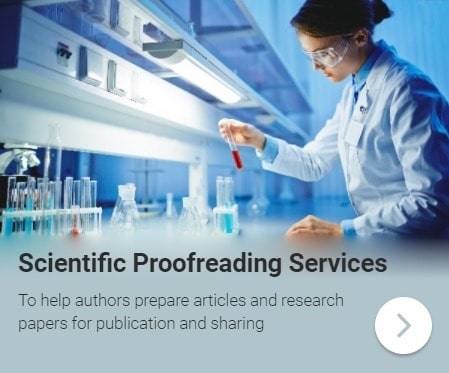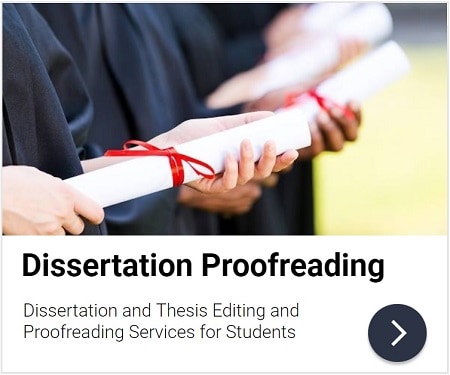Chapter 5: Finding Your Scholarly Voice in Correct and Consistent Written English
Most students who have advanced to the level of doctoral research will have a good idea of what scholarly prose should be – you may already, for instance, have published articles in reputable scholarly journals before beginning your doctoral research. However, a doctoral thesis places new demands on an author: the thesis is, for one, almost certainly the longest piece of writing you have ever attempted, so you will need to sustain an argument over several chapters and bring it to an appropriate conclusion. This involves introducing many factual details and threads of thought and tying them together in a variety of intellectually productive ways, and it also requires deep, logical and creative thinking. It will necessitate variations in your writing style to avoid prose that is repetitious and potentially dull to readers, but must nonetheless remain professional, clear and correct as well as maintaining consistency across numerous details. Whether English is your first language and you consider yourself an aficionado of formal writing or not, this chapter will prove helpful by providing you with advice on a number of matters that academic and scientific writers of English prose tend to find particularly challenging. It relies upon the best style guides and the general expectations associated with academic and scientific writing at the doctoral level and beyond. For further assistance with various aspects of scholarly writing, the open-access Purdue Online Writing Lab (1995–2015) may prove particularly helpful.
Depending on your English language skills and your confidence in them, you may want to use the information in this chapter as a guide to correct style while you write up your thesis or you may wish to consult it only after your thesis is drafted to ensure that you have not incorporated incorrect, inconsistent or otherwise problematic elements in your writing. Whatever the case may be, this and the following three chapters should be used in conjunction with the first part of this book on the requirements and progressive writing of a thesis, with the principles outlined here applied to the writing-up process as necessary. These chapters[1] are not intended to replace any university or department guidelines you are required to observe or any style guides recommended by those guidelines and/or your thesis committee, but they may well provide details and present options for resolving problematic matters not covered by such guidance. Accuracy is certainly the central key to much of what I have to say in these chapters, but if anything could be called an appropriate mantra to keep in mind as you write, it is ‘consistency, consistency, consistency.’
[1] Please note that some information and examples in Parts II and III of this book on writing formal scholarly English, formatting and presenting academic and scientific prose in appropriate ways, producing consistent and complete bibliographical references and using effective techniques for integrating direct quotations have been borrowed and adapted from Olson 2014a and especially Olson 2014b.
5.1 British versus American Spelling
There are two main forms of formal English: British and American. A thesis written in English should use one of these forms consistently, and university or department guidelines (or the style guides they recommend) may indicate which form of English is most acceptable. However, many doctoral candidates whose first language is not English and even some whose first language is may not be aware of the nature and extent of the variations between the two forms. Setting the default language to either British or American in a word-processing program such as Word can be helpful for catching and correcting many words, but this is far from foolproof. Most good English dictionaries will note spelling variations, but some dictionaries do not indicate in all cases whether the spelling variants provided are determined by the differences between British and American English. I therefore present the following list (based primarily on Butcher et al., 2006, and Ritter, 2005) as a guide to the most common variants.
|
British English |
American English |
|
our: colour, honour, favour, labour, tumour, neighbour, harbour, behaviour |
or: color, honor, favor, labor, tumor, neighbor, harbor, behavior |
|
re: centre, theatre, sceptre, ochre, litre, fibre, sombre, sabre, metre, but parameter, perimeter, sober, letter, tender |
er: center, theater, scepter, ocher, liter, fiber, somber, saber, meter, parameter, perimeter, sober, letter, tender |
|
ise: organise, spiritualise, systemise, recognise (organize, spiritualize, systemize, recognize also acceptable), promise, revise, comprise, concise, advertise, guise |
ize: organize, spiritualize, systemize, recognize, but promise, revise, comprise, concise, advertise, guise |
|
s: analyse, paralyse, catalyse, cosy |
z: analyze, paralyze, catalyze, cozy |
|
ae: encyclopaedia, aesthetics, anaemia, mediaeval (or medieval), archaeology |
e: encyclopedia, esthetics, anemia, medieval, archeology, but also archaeology |
|
oe: manoeuvre, foetal, amoeba |
e: maneuver, fetal, but usually amoeba |
|
ou: mould, smoulder, moult |
o: mold, smolder, molt |
|
ogue: catalogue, analogue, dialogue, monologue, epilogue |
og: catalog, analog, dialog (or dialogue), but monologue, epilogue |
|
dge: acknowledgement, abridgement, judgement, but judgment in legal contexts |
dg: acknowledgment, abridgment, judgment |
|
ce and se: practice (noun), practise (verb), licence (noun), license (verb), defence, pretence |
ce and se: practice (noun and verb), license (noun and verb), defense, pretense |
|
eable: saleable, sizeable, knowledgeable, bridgeable, but amicable, navigable |
able: salable, sizable, amicable, navigable, but knowledgeable, bridgeable |
|
gramme: gramme, programme (but computer program), diagram, anagram, telegram |
gram: gram, program, diagram, anagram, telegram |
|
ph: sulphur, sulphide, sulphate |
f: sulfur, sulfide, sulfate |
|
que: cheque, chequer, chequing, chequered |
ck: check, checker, checking, checkered |
|
sc: sceptic, mollusc |
sk: skeptic, mollusk |
|
l: appal, fulfil, distil, enrol, instalment, skilful, wilful, but install |
ll: appall, fulfill, distill, enroll, installment, skillful, willful, install |
|
double consonants: focussed, biassed, traveller, grovelled, modelling, tunneller, controllable, enrolling |
single consonants: focused, biased, traveler, groveled, modeling, tunneler, but controllable, enrolling |
|
ough: plough |
ow: plow |
|
two words: per cent |
one word: percent |
The list above is by no means exhaustive or conclusive and, as its examples demonstrate, there can be considerable overlap in usage, with each form of English using the spellings more common to the other at times. However, if this list is consulted in conjunction with a good British or American dictionary that notes the variants common in the other form of English, most uncertainties can be resolved. If you find that certain words you need to use in your thesis prove especially problematic simply because it is impossible to decide which spelling is British and which is American even after consulting dictionaries and whatever additional online help might be available, there is a good chance that the spelling variants are not specifically linked to either form of English and so can be used in both. In such cases, the goal is to adopt and use one form of each word consistently throughout the thesis. Beyond the spelling variants listed above, there are a number of usages that vary between British and American English. Examples include ‘different from’ versus ‘different than,’ ‘got’ versus ‘gotten,’ ‘hire’ versus ‘rent,’ ‘petrol’ versus ‘gas(oline),’ ‘mobile’ versus ‘cell (phone),’ ‘first-year student’ versus ‘freshman’ and ‘aeroplane’ versus ‘airplane’ (with the British form first in each case). For some of these terms, an additional concern is whether or not the intended audience will understand them. Most academic and scientific work is written in the twenty-first century with at least the possibility of international readers in mind, so it can be helpful to use a term that will be universally understood (‘mobile phone,’ for instance, instead of ‘mobile’ or ‘cell’) or to provide a brief explanation on first use (that ‘petrol’ in Britain, for example, is the fuel known as ‘gas’ or ‘gasoline’ in the United States).
Why PhD Success?
To Graduate Successfully
This article is part of a book called "PhD Success" which focuses on the writing process of a phd thesis, with its aim being to provide sound practices and principles for reporting and formatting in text the methods, results and discussion of even the most innovative and unique research in ways that are clear, correct, professional and persuasive.
The assumption of the book is that the doctoral candidate reading it is both eager to write and more than capable of doing so, but nonetheless requires information and guidance on exactly what he or she should be writing and how best to approach the task. The basic components of a doctoral thesis are outlined and described, as are the elements of complete and accurate scholarly references, and detailed descriptions of writing practices are clarified through the use of numerous examples.
The basic components of a doctoral thesis are outlined and described, as are the elements of complete and accurate scholarly references, and detailed descriptions of writing practices are clarified through the use of numerous examples. PhD Success provides guidance for students familiar with English and the procedures of English universities, but it also acknowledges that many theses in the English language are now written by candidates whose first language is not English, so it carefully explains the scholarly styles, conventions and standards expected of a successful doctoral thesis in the English language.
Individual chapters of this book address reflective and critical writing early in the thesis process; working successfully with thesis supervisors and benefiting from commentary and criticism; drafting and revising effective thesis chapters and developing an academic or scientific argument; writing and formatting a thesis in clear and correct scholarly English; citing, quoting and documenting sources thoroughly and accurately; and preparing for and excelling in thesis meetings and examinations.
Completing a doctoral thesis successfully requires long and penetrating thought, intellectual rigour and creativity, original research and sound methods (whether established or innovative), precision in recording detail and a wide-ranging thoroughness, as much perseverance and mental toughness as insight and brilliance, and, no matter how many helpful writing guides are consulted, a great deal of hard work over a significant period of time. Writing a thesis can be an enjoyable as well as a challenging experience, however, and even if it is not always so, the personal and professional rewards of achieving such an enormous goal are considerable, as all doctoral candidates no doubt realise, and will last a great deal longer than any problems that may be encountered during the process.
Interested in Proofreading your PhD Thesis? Get in Touch with us
If you are interested in proofreading your PhD thesis or dissertation, please explore our expert dissertation proofreading services.


Services
PhD Dissertation Proofreading
Our PhD dissertation proofreaders specialise in improving grammar, sentence structure, citations, references, clarity, logical flow and readability.
Master’s Dissertation Proofreading
To avoid failure and its consequences, send your dissertation to our master’s dissertation proofreading service.
Scientific Dissertation Proofreading
Our scientific proofreaders specialise in correcting and perfecting the language, editorial styles and references across all science fields.
Headquarters
Dissertation-Proofreading.com
Allia Future Business Centre
The Guildhall
Market Square
Cambridge
CB2 3QJ
United Kingdom
More Expert Proofreading Services
Journal Editing
Journal article editing services
PhD Thesis Editing
PhD thesis editing services














